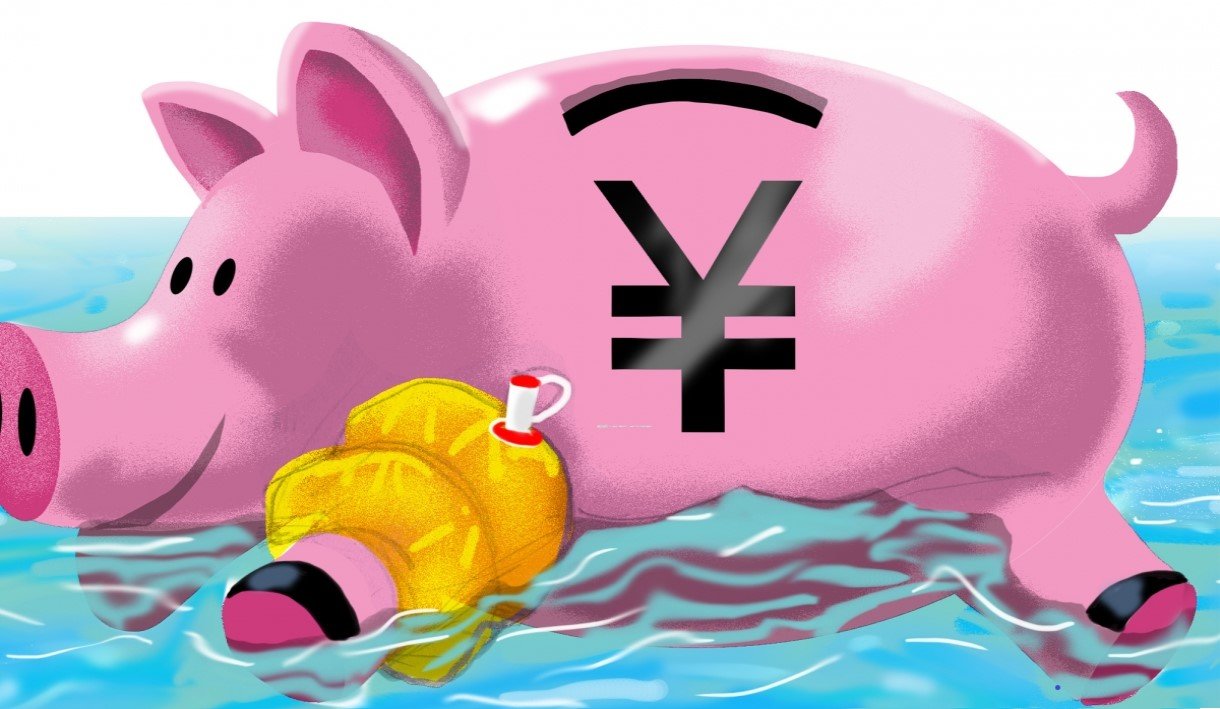

Aug
On more than one occasion, we have discussed various scenarios which revolve around (potential) developments in China after a financial calamity here at ChinaFund.com. In fact, an entire article has been dedicated to just that. However, these discussions have primarily revolved around a DEFLATIONARY environment, in other words scenarios such as a market crash which brings about a collapse in asset prices.
What we haven’t done is given proper attention to the INFLATIONARY dimension, in other words an analysis which revolves around two main scenarios:
- An endogenous currency crisis, in other words a loss of faith in the renminbi which is brought about by internal developments rather than China aligning itself to a broader international trend
- An exogenous crisis, in other words the manner in which the renminbi is likely to be affected by an international currency crisis, perhaps even one in which China is in no way “at fault”
First and foremost, before continuing, we would strongly recommend reading our article about the renminbi if you haven’t by now so as to have the proper context for our discussion.
With that stated, we can move on to the first scenario, one involving an endogenous currency crisis. As robust as the economy of China may seem to an external observer, let’s just say there are areas in which China has most definitely under-performed. For example, while Western stock markets have recovered after the Great Recession of 2007-2008, the same cannot be said about the performance of China’s stock market, as illustrated by the crash of 2015-2016 and subsequent price action, to which an article has been dedicated that you can read by clicking HERE.
An important aspect to keep in mind is that compared to Western stock markets, more volume as a percentage of the grand total is represented by “mom and pop” investors in China. In other words, by the average Chinese investor rather than sophisticated hedge funds or other financial industry players. As such, concerns such as whether or not these investors will lose confidence in the Chinese stock market are more than valid but… once again, wouldn’t this lead to a deflationary shock, for example to stock prices continuing to go down?
The answer is “ yes… but possibly no” or in other words that, indeed, the initial symptoms would prove to be deflationary in nature but investors/capital can be quite fickle and it only takes a “perfect storm” situation for let’s say a loss of confidence in the stock market to degenerated into a loss of confidence in the nation’s currency.
And despite being included in the IMF’s basket of currencies as of 2016 (a significant achievement), the renminbi is far from being a remarkably robust currency. As such, the likelihood of a Chinese loss of confidence in the stock market degenerating into a loss of confidence in the renminbi is far greater than the likelihood of, for example, a loss of confidence in the US stock market leading to a symmetric loss of confidence in the dollar. As such, it would be wise to understand that no, a currency panic is in no way off the table when it comes to China, especially if it’s endogenous developments that lead to it.
Which leads us to, of course, the second dimension, the exogenous crisis one.
What if the exact opposite happens? What if a currency crisis were to let’s say emerge in a completely different part of the world, with contagion ultimately bringing it to China as well? In that case, as far as this author’s opinion is concerned at least, there are two key aspects to keep in mind:
- The fact that even if the origins of the crisis are in no way linked to China, the renminbi would initially suffer
- The fact that after the dust settles, a currency crisis may very well morph into an opportunity
As contradictory as these two aspects may seem, we need to understand that China’s role in the ecosystem and especially the manner in which its role is perceived by the market is not static. At this point in time, we can say with complete confidence that no, China is not considered a “safe haven” jurisdiction such as the United States, Germany and so on. However, this status quo cannot persist indefinitely and under the right circumstances, the market can definitely decide to grant China a safe haven status.
The aftermath of an international currency crisis can represent precisely the environment which enables the market to do just that. Perhaps at the expense of a current safe haven destination, perhaps not. The bottom line is this: if China is not in the spotlight (in other words, if the crisis in no way originated there) and on the contrary, if it ends up at least being perceived as a lesser evil, a currency crisis can indeed turn into an opportunity.
As can be seen, we have essentially covered two extremes: a crisis that originated in China and one which had nothing to do with China whatsoever. If the “truth” will lie in the middle when it comes to the next currency crisis, so will the subsequent developments. To conclude, it makes sense to simply enumerate the key takeaways:
- While the Chinese economy is much larger than a few years and especially decades ago, China is not yet a safe haven jurisdiction
- An endogenous currency crisis would, needless to say, hurt its chances of becoming one
- An exogenous currency crisis, on the other hand, may very well prove to be a blessing in disguise under the right circumstances, depending on the degree to which China did or didn’t cause said calamity
